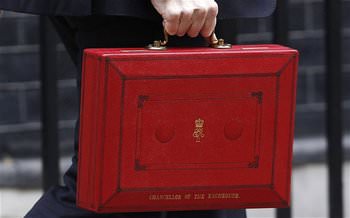
Autumn Statement 2015
The key changes announced in the Autumn Statement include:
- An extra 3% stamp duty land tax charge on the purchase of additional residential properties from 1 April 2016.
- A requirement to make a payment on account in respect of capital gains tax within 30 days of the disposal of residential properties from April 2019.
- The changes announced to tax credits in Summer Budget 2015 have been abandoned.
Property owners
Stamp duty land tax — additional residential properties
The Government is to consult on an increase to the stamp duty land tax (SDLT) due on purchases of second or additional residential properties which complete on or after 1 April 2016. The use of the property is irrelevant and so it will apply whether it is to be rented or used as a second home.
The rate applied will be 3% above the current SDLT rate. Corporates and funds making “significant investments in residential property” (thought to be a minimum of 16 residential properties) are likely to be exempted from the additional charge.
The definition of residential property for these purposes does not include:
Caravans, mobile homes, houseboats.
There are many areas that are yet to be clarified, including:
- where a zero-rate currently applies to purchases of up to £125,000,will the new rate be 3%?
- will this apply to higher rate purchases by non-natural persons, meaning that the new top rate will be 18%?
Capital gains tax — administration
The Chancellor announced that from April 2019 a payment on account of any CGT due on the disposal of residential property must be made within 30 days of completion. The draft legislation will be subject to consultation in 2016 with a view to the provisions being legislated in Finance Bill 2017.
It is not expected that the existing rules will change, meaning that if the disposal is fully covered by principal private residence (PPR) relief then no tax will be payable. Currently the cash flow advantage sits with the taxpayer, as the tax is not due until 31 January after the end of the tax year. This may be almost 22 months after the date of disposal. Accelerating the due date for payment will ensure that the cash flow advantage sits with HMRC, although how relief for capital losses will be given effect in-year is, as yet, unclear.
There are two points to note:
- it appears that the deadline for payment will be triggered by the date of completion, where as the date of disposal for CGT is the date of exchange
- this mirrors the 30-day deadline for the submission of the NRCGT (non-resident capital gains tax) return and payment of tax and may correct the current administration anomaly whereby some non-residents are required to pay the tax within 30 days and some do not have to pay the tax until the normal 31 January deadline.
Digital Tax Accounts
The Chancellor confirmed the government’s intention to invest £1.3 billion in ‘making tax digital’. He originally announced ‘the end of the annual tax return’ in Budget 2015 and since then HMRC has published its plans for a digital Personal Tax Account and Business Tax Account for each taxpayer by 2016/17.
Initially it was clear how employment income and most investment income could be fed through to HMRC automatically to prepopulate the digital tax account. HMRC already has the required links with employers, banks and company registrars. It was less obvious how landlords and small businesses could avoid the annual tax return because most of the information can only be provided by the taxpayers themselves.
The aim is to develop tax software packages that enable taxpayers and accountant to feed information into the digital tax accounts, in the same way that accountants currently use commercial software to file tax returns. However, instead of collecting all the information and filing it once a year, the key difference will be that the update will be piecemeal and incremental.
The Autumn statement, reveals that by 2020 most businesses, self-employed people and landlords will be required to keep track of their tax affairs digitally and update HMRC at least quarterly via their digital tax account. Necessary software will be available free of charge. So, instead of an annual tax return, a quarterly tax return will be required.
For VAT-registered businesses, the additional filing required will be minimal. But those who stuff all their records in a ‘brown paper bag’ and deliver them to their accountant once a year will need to reorganise. Employees and pensioners will not be required to update their digital tax account unless they have secondary incomes of more than £10,000 per year.
Personal Tax Averaging of profits for farmers
Following consultation, the averaging period will be optional and self-employed farmers will be able to stick with the two year period or extend to a five-year period from April 2016.
Business tax Apprenticeship levy
As part of its strategy to see a marked increase in the number of apprenticeships offered by employers, the Government intends to introduce an apprenticeship levy payable by large employers as from April 2017. The levy will be set at 0.5% of an employer’s pay bill (total amount of earnings paid (excludes benefits in kind) to the employer’s employees) and is payable over a £15,000 threshold, so will not apply to small companies unless the wage bill exceeds £3m.
Company car benefits — diesel cars
Currently the appropriate percentage used to determine the amount of tax due on an employee’s use of a company car is three percentage points higher if the car in question runs on diesel. That 3% supplement was due to be abolished for 2016/17 onwards, but the supplement will now remain in place until April 2021.
Contact us
For any further information about the changes above or other tax advice, please call 01904 655202 and ask for Robert, Nigel or Paul or email:







